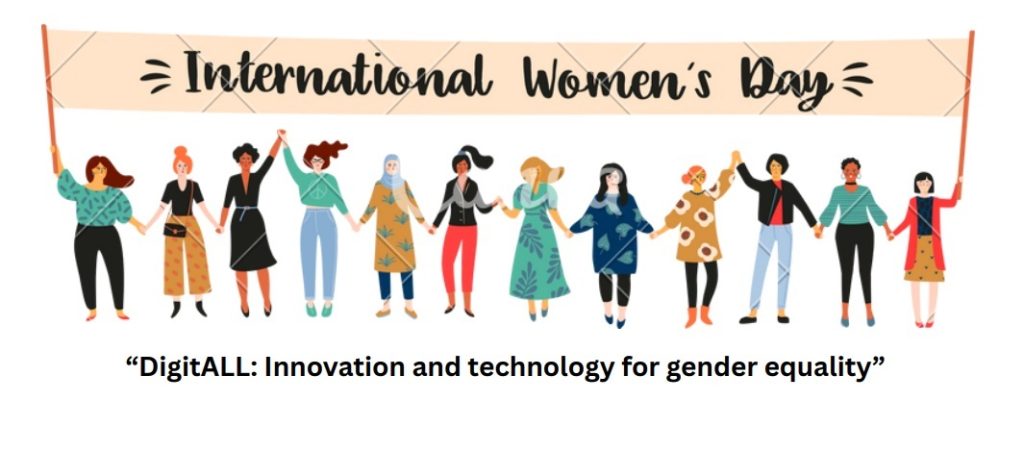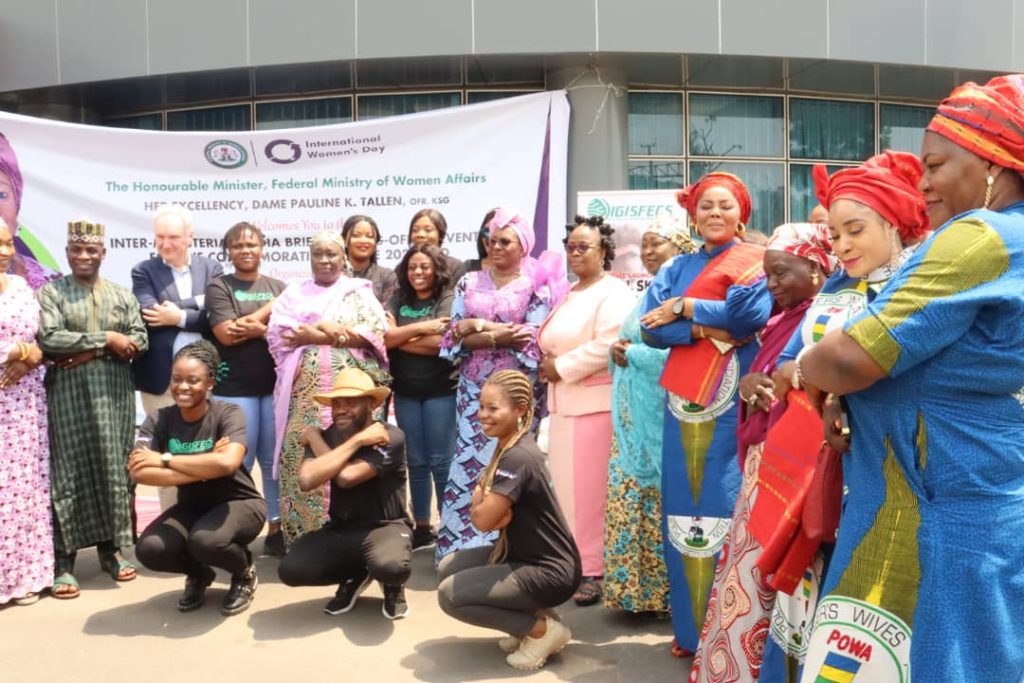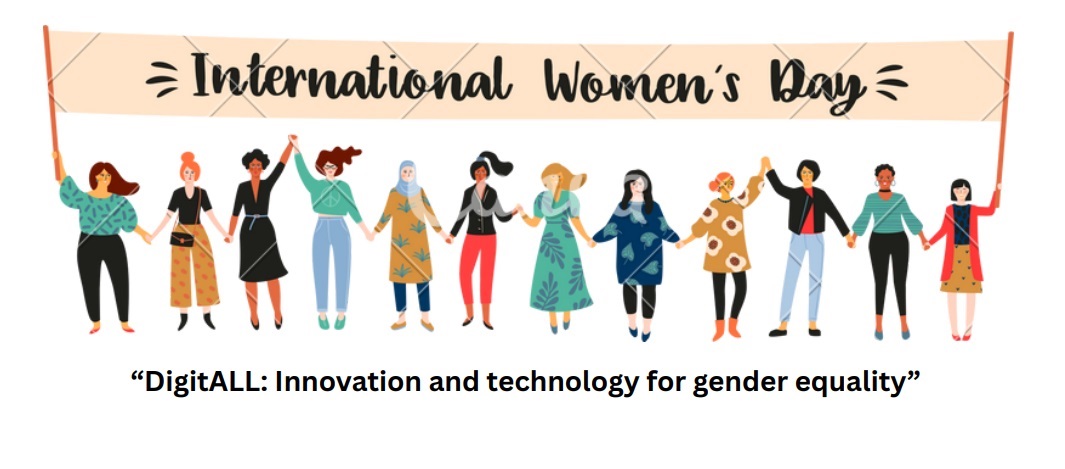
The endless possibilities of digital technology in an increasingly technological world, guarantees access, opportunities and solutions to challenges of various forms especially as it affects women and girls.
Despite their many achievements, women and girls remain underrepresented in science, technology, engineering, and mathematics (STEM) fields with just three per cent studying information and communication technology, globally.
The Growing inequalities are becoming increasingly evident in the context of digital skills and access to technologies, with women being left behind as the result of digital gender divide.
The theme for the 2023 international women’s day, “DigitALL: Innovation and technology for gender equality” advocates for a gender-responsive approach to innovation, technology and digital education to increase the awareness of women and girls regarding their rights and civic engagement.

The Minister of women Affairs, Dame Pauline Tallen explained that young women in Nigeria viewed careers in STEM fields as strongly male-dominated, which called for the need for educational reforms that foster girl curiosity in the sciences from an early age.
“I therefore ask that, Teachers and educational institutions be supported to consciously remove gender biases and stereotypes in our educational environments, textbooks and didactic materials”.
”It starts with making women’s contributions to STEM visible, including through connecting young women and girls with STEM professionals and mentors,” she said.
Dame Pauline Tallen further said government over the years had carried out ICT Training on Mobile Phones & Laptop Repairs for 1,000 Female Artisans selected from the 36 states of the Federation and equipped them with skills needed to troubleshoot problems in mobile phones.
Online bullying on women and girls
The United Nations-women Country Representative, Ms. Beatrice Eyong noted that many women continued to be excluded from significantly shaping the digital technology and innovation space due to pervasive patriarchal norms that limits their access to learning and education.
“The economic costs of digital gender gap are significant, so also are the social, political, and cultural costs. Online violence against women and girls is pervasive, 38% of women surveyed in 51 countries had personally experienced online violence, this experience has the potential to exclude women from online spaces.” she pointed out.
Bridging the gap
The Special Assistant to the Director General, National, National Information and Technology Development Agency, NITDA, Mrs Iklima Musa explained the agency was developing a gender digital inclusion strategy to bridge the gender gaps that exist in Nigeria’s digital economy.
Some women spoke on how digital technology had improved their visibility in terms of education and opportunities.
Aisha Raji, a graduate of Quantity Survey said “Technology is a male dominant culture, so most time women fitting into that sector is quite difficult for them to handle.
”I feel more mentorship and more opportunities should be given to women to cover that gender gap”, she said.
Experts opined that the exclusion of women and girls in technology is shrinking their futures and deepening gender, economic and social inequalities, this had made it crucial to develop their digital skills to be innovative in creating sustainable solutions that address the numerous challenges facing their development.
RN
